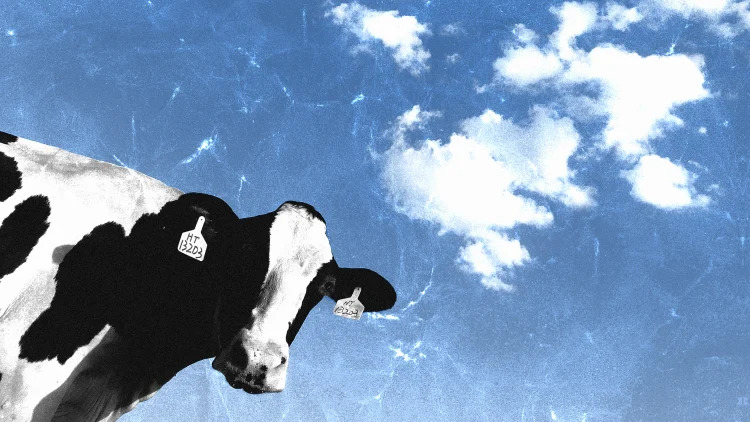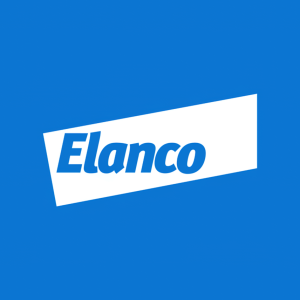A Climate Solution Is Here, and It Has Four Stomachs
Rhea-AI Summary
Elanco Animal Health's CEO, Jeff Simmons, discusses a climate solution for the dairy and meat industry in a Fast Company article. He highlights that cattle can be part of addressing global hunger and climate issues. The FDA recently approved Bovaer® (3-NOP), Elanco's methane-reducing feed ingredient for lactating dairy cattle. This product can lower methane emissions by around 30%, equivalent to 1.2 metric tons of CO2e emissions annually per cow.
Simmons emphasizes the importance of climate neutral farming and introduces tools like UpLook for measuring greenhouse gas emissions and Athian's carbon insetting marketplace. These innovations aim to help farmers reduce, measure, and monetize emission reductions, benefiting the entire food chain. The goal is to achieve climate neutral livestock farms within this decade, making U.S. farmers more competitive while helping food companies meet their emissions goals.
Positive
- FDA approval of Bovaer® (3-NOP) for use in lactating dairy cattle
- Bovaer can reduce methane emissions by 30% per cow, equivalent to 1.2 metric tons of CO2e annually
- Introduction of UpLook tool for measuring greenhouse gas emissions
- Launch of Athian's carbon insetting marketplace for monetizing emission reductions
Negative
- None.
News Market Reaction 1 Alert
On the day this news was published, ELAN declined 0.55%, reflecting a mild negative market reaction.
Data tracked by StockTitan Argus on the day of publication.
Dairy and meat don't have to induce guilt-or climate change-as farming is about to change.
By Jeff Simmons
Originally published by Fast Company
NORTHAMPTON, MA / ACCESSWIRE / October 8, 2024 / From the world's largest food companies to consumers, we are focused on finding ways to reduce our impact on climate change. For some, the solution has been to give up a staple on tables across the country-the burger.
But I'm here to let you in on a secret. You can have your burger without the side of guilt. That's because the cow's environmental footprint just changed.
Some of the world's largest food companies have set significant climate commitment goals, yet the path to achieve this is one of the industry's biggest challenges. That's because it's difficult to capture the reduction value of Scope 3 emissions-indirect emissions that occur in the value chain. These food companies must not only consider their role in getting the glass of milk on your table, but the footprint of the cow too.
A response to methane
It's clear we all want a choice in what we eat. Demand for animal-based protein isn't declining- it's growing. The Food and Agriculture Organization of the United Nations recognized both the need for more animal protein production to address global hunger, while also reducing emissions. In livestock, they've identified nine measures to reduce methane emissions
The biggest opportunity to make a difference in emissions is inside the animal-enteric methane. Methane is shorter lived than carbon dioxide (CO2), lasting about a decade in the atmosphere, but is 27 times more potent at trapping heat. With methane, smaller reductions can create a bigger impact. But you can't have environmental sustainability without also creating economic sustainability, meaning sustainable practices must also be profitable on the farm to create widespread adoption.
The U.S. Food and Drug Administration (FDA) recently completed its comprehensive, multi-year review safety and efficacy review of our product, Bovaer® (3-NOP), a first-in-class methane-reducing feed ingredient, for use in lactating dairy cattle. The product suppresses the methane-inducing enzyme in the cow's rumen. By giving one tablespoon of Bovaer to each lactating dairy daily, we can lower methane emissions by around
Other climate tools
Climate neutral farming keeps U.S. farmers globally competitive so that they can continue to produce more food with a lower, and ultimately balanced environmental footprint. Access to this technology now gives farmers another tool to implement. It starts with innovations in feed, like Bovaer, and other on-farm solutions, implementing tools like our tool UpLook, an insights-based engine designed to measure and monitor greenhouse gas emissions, and Athian's first-of-its-kind voluntary livestock carbon insetting marketplace to create the necessary ecosystem to help farmers reduce, measure, and monetize their emission reductions, delivering value through the entire food chain.
Climate neutral livestock farms are the future, and will happen this decade. Making the U.S. farmer more profitable and competitive, helping food companies achieve their Scope 3 emissions goals, and giving consumers what they also want-more environmentally conscious animal protein options-environmentally friendly dairy choices from milk and yogurt to cheese, ice cream, and more.
Jeff Simmons is president and CEO of Elanco Animal Health.
Apply to the Most Innovative Companies Awards and be recognized as an organization driving the world forward through innovation. Extended deadline: October 11.
Continue reading here

Source Photo: Ryan Song/Unsplash
View additional multimedia and more ESG storytelling from Elanco on 3blmedia.com.
Contact Info:
Spokesperson: Elanco
Website: https://www.3blmedia.com/profiles/elanco
Email: info@3blmedia.com
SOURCE: Elanco
View the original press release on accesswire.com







